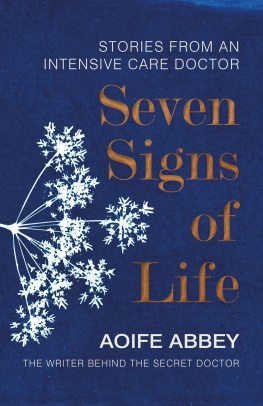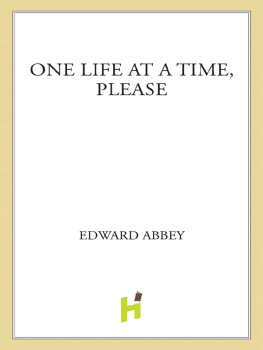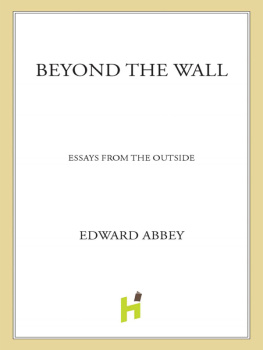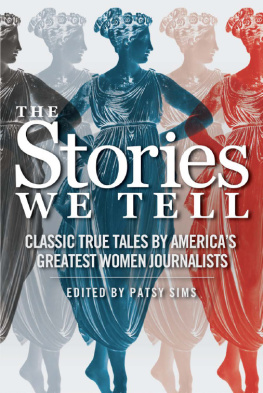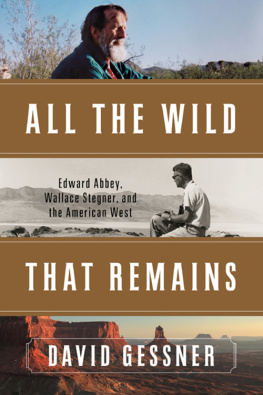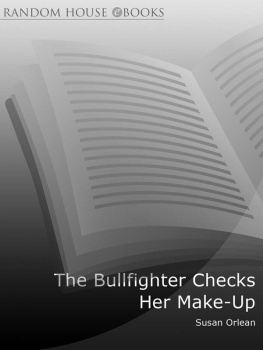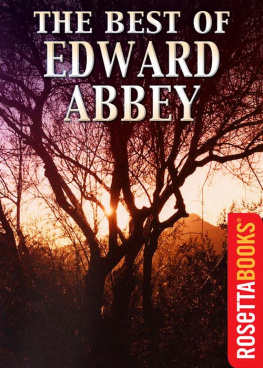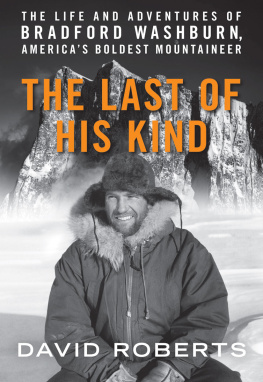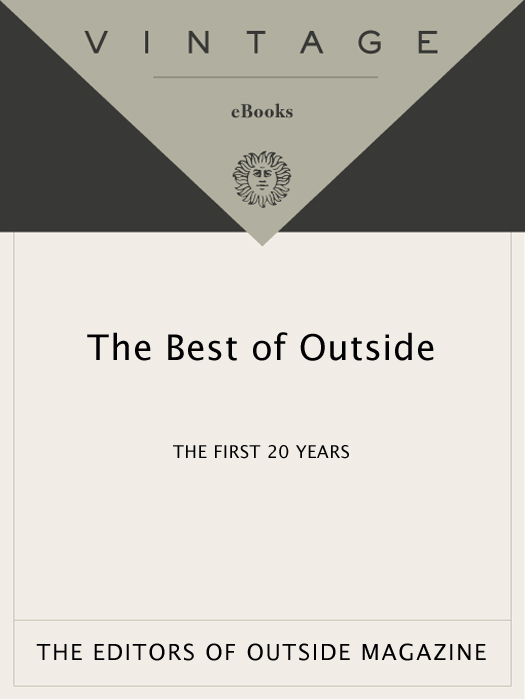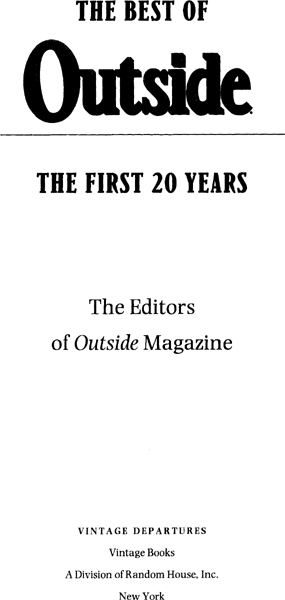PRAISE FOR The Best of Outside
Engaging, sharp-eyed reports on the people, places, politics, art, literature, and natural history of the great and not-so-great outdoors.
Miami Herald
Theres a reason Outside magazine has received the National Magazine Award for general excellence its the writing. Whether youre in need of a good laugh, a sobering thought, or just plain entertainment, youre likely to find it in The Best of Outside.
North Coast Sports
Outside has long been known for its writing; it has been nominated for National Magazine Awards 16 years in a row and won six.
The New York Times
Original and engaging reports on travel, adventure, sports, and the environment. The Best of Outside represents the finest the award-winning magazine has to offer: thirty-one stories that range from high action to high comedy.
Womens Magazine
This book glitters highly recommended.
Library Journal
Outside writers offer unique insights and powerful prose. I shake my head in wonder at the strength and clarity of such writing; I know Ill visit this book again and again. So should you.
Bookpage
The Best of Outside is filled with the serious and the thoughtful, the humorous and the outrageous. A must for anyone who enjoys provocative outdoor adventure writing.
Wisconsin Bookwatch
The Best of Outside
Outside magazine has been in publication since 1977. It has received six National Magazine Awards, including the award for reporting in 1997 and the award for general excellence in both 1996 and 1997.
Contents
Introduction
The difference between journalism and literature is that journalism is unreadable and literature is not read.
O SCAR W ILDE
Nobody who loves to hunt feels absolutely hunky-dory when the quarry goes down, wrote Thomas McGuane in his now classic The Heart of the Game, published in Outsides inaugural issue twenty years ago and reprinted here. The remorse spins out almost before anything and the balancing act ends on one declination or another. I decided that unless I become a vegetarian, Ill get my meat by hunting for it. Ive seen slaughterhouses, and anyway, as Sitting Bull said, when the buffalo are gone, we will hunt mice, for we are hunters and we want our freedom.
Freedom was what Outsides editors sought as well, as that first issue made abundantly clear. In this particular landscape, freedom meant an editorial ability to range near and far: Alongside McGuanes elegant, richly personal consideration of hunting were an article on the shock-troop ethos of Greenpeace; an examination of the egg; a melancholy report from paradise lost on the island of Kauai; reviews of the Minox 35EL camera, the Hi-Roller cowboy hat from Texas Hatters, and The Hallucinogenic and Poisonous Mushroom Guide; and a decidedly short story (188 words) by Richard Brautigan about a bicyclist and two dogs on a roof. Obviously no one was looking to get typecast at Outside; not only would the magazine entertain a full array of subjects, but it would also air a wide spectrum of opinion as wellthe better to keep the reader guessing and preserve, as editor-at-large David Quammen would put it years later, the cacophonous disunity of souls. The one fixed requirement was that the writer, every writer, be skillful enough to pull it all off.
That the magazine was trying to stake out some wide-open territory in which to conduct its business, that it had journalistic and literary ambitions, was largely a response to the banality of much that was available to people who loved the outdoors and loved to read, circa 1977. Among magazines there were the traditional hunting and fishing and camping monthlies, some respectable if earnest back-to-the-land journals, and lest we forget, the longstanding mens adventure periodicals, which were still happily serving their readers a never-ending bounty of flesh-eating headhunters, exploding volcanoes, and blood-crazed wild beasts. There seemed to be no magazines about the outdoors that would have published the more lyric offerings of a contemporary Twain or Melville or Dinesen or Conrad, wilderness folks all. In fact, there was no publication that saw itself as a general-interest magazine about the outdoors and placed a premium on reporting and thinking and storytelling. To Outsides editors and writers, there was no more perfect arena in which to probe the complexities of the human condition than the natural world, the world as it really is out there. And there was no better method of exploration than the long and demanding process of reporting and then writingtruly writingabout it. I write because I hold the conviction, smarmy as it might seem, that we must give back to that from which we take, Bob Shacochis, the National Book Award winner and Outside contributing editor, has said. Take a penny, leave a penny. What Ive most taken from in my life is the banquet table of literature. What most fulfills my sense of worth are my own attempts to contribute to the timeless feast, to keep the food replenished and fresh There are no old myths, the writer Jim Harrison once said, only new people.
The great Oakland Raider George Blanda once observed, You stay in this game twenty-two years and things are gonna happen. Happily for us, they seem to have been happening right from the beginning. Through the years, the magazine has continued to interpret its mission broadly, seeking to evolve with the times, its readers changing interests, and its writers and editors intuitions. Thus far, it seems to be working: What early critics deemed a charming if naive little enterprise that would never attract great writers, let alone a large and committed audience, has been nominated for National Magazine Awards in each of the last fifteen years, winning six times, three of them in the last couple of years. But whatever weve achieved in our better moments comes compliments of the magazines ambitious rootsand the skilled writers that those ambitions led us to discover and publish. Weve been profoundly fortunate to provide an environment for some of the finest writers of a few generations: Norman Maclean, James Salter, Annie Proulx, Robert Stone, David Quammen, Jane Smiley, Edward Abbey, Barry Lopez, Tim Cahill, William Kittredge, William Burroughs, Bob Shacochis, Susan Orlean, Barry Hannah, Jim Harrison, Ian Frazier, Jonathan Raban, Thomas McGuane, Bill Bryson, Peter Matthiessen, Chip Brown, Randy Wayne White, Bill McKibben, Donald Katz, Kate Wheeler, Mark Kramer, Garrison Keillor, Craig Vetter, James Hamilton-Paterson, Willian Finnegan, Edward Hoagland, Jon Krakauer, and many others.
Spouting such a list probably seems a little like boasting, and perhaps it is. But what Im trying to get across here is how privileged we are. Outside may be (as Im prone to prattle on about) a great license to be curious, but it would be another magazine altogether without this particular corps of writers. What Outsides authors share is not so much a style of writing as an attitudeabout themselves and the planet at large. An attitude that is fiercely independent and often irreverent, touched by irony yet also generous and inclusive. These writers marvel at much of what they discoverwhether at the far ends of the earth or lurking in the backyardyet they are also, properly, saddened and angered by some of what they find. They resist compartmentalizing their experiences, understanding that what we see and do outside is an integral part of life, a life crammed with contradictions and maddening, intriguing shadings. Thus they aim high, creating pieces not merely to entertain on the subject at handknocking around the forests of Belize, summiting Mount Everest, home-steading in Montana, evading the snapping jaws of the Komodo dragonbut to explore our behavior, our values, our judgments, our place in the natural order of things. These people know how to watch and listen and tell a story.


